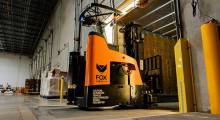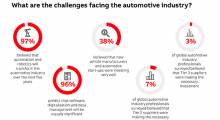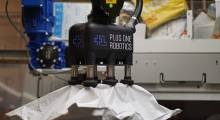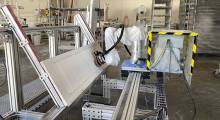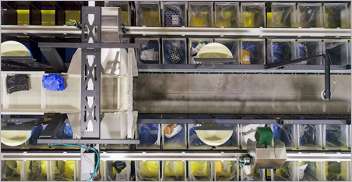A new IDC Manufacturing Insights report suggests manufacturers who do not embrace digitization will struggle to succeed in coming years.
“IDC FutureScape: Worldwide Manufacturing 2017 Predictions” provides manufacturers with the top 10 predictions and underlying drivers expected to impact manufacturers’ IT investments in 2017 and beyond. Key themes woven into the predictions for 2017 include the need for digital transformation, new ways of innovating, more integrated IT and operations, business security, and rethinking the future of work.
Kimberly Knickle, research vice president for IDC, said in a recent interview that manufacturers’ preparedness varies.
“We definitely see a set of manufacturer who recognize the value of technology and are able to move forward, a set who wish they could, and a set with their heads stuck in the sand,” she says. “Manufacturers have trouble connecting with stories like Uber and Airbnb, but they need to realize digitization will be just as important to any B2B industry. It’s inevitable, and I am very concerned about the companies who are not making some kind of investment either because they are not thinking about it or can’t find a way to get the budget together.”
Knickle highlighted Prediction 8: “By 2018, a proliferation of connected information, instrumentation, and decision cloud ecosystem networks will drive manufacturers to redesign their security architectures.”
“I think this is something all manufacturers have to do urgently,” she said. “It is first a matter of business security, and risk avoidance drives the rest of it. Technology makes security decisions more complex, but how does your business define security? The ability to survive over the long term? Each business needs to define what it means to its supply chain and how it operates.”
For those having trouble understanding how the digital transformation translates to their business, Knickle says they can always come back the business priorities nobody can ignore, like product quality and customer-centricity. In the meantime, not all the security implications of connected products are understood, Knickle said, especially when considering interfaces between modern equipment and decades-old legacy devices.
“The key is to make a direct connection between technical security components and how that relates to business security,” she said. “We’ve seen the healthcare industry go through this, and it has been regulated. But it’s not yet regulated in the manufacturing industry, where only certain pockets have made that security connection. Hopefully it doesn’t have to happen through regulations and standards, and hopefully financial analysts are making that connection.”
The top ten predictions are:
Prediction 1: By 2018, only 30% of manufacturers investing in digital transformation will be able to maximize the outcome; the rest are held back by outdated business models and technology.
Prediction 2: By 2019, 75% of large manufacturers will update their operations and operating models with Internet of Things (IoT) and analytics-based situational awareness to mitigate risk and speed time to market.
Prediction 3: By 2018, 60% of large manufacturers will bring in new revenue from information-based products and services, while embedded intelligence will drive the highest profitability levels.
Prediction 4: By 2020, manufacturers will capture 20% more aftermarket revenue by using product and service quality measures to enhance customer experiences.
Prediction 5: In 2019, 40% of G2000 manufacturers will use design democratization and collaborative innovation to meet corporate targets for revenue from newly developed products and services.
Prediction 6: By the end of 2020, 50% of manufacturers will derive business value from the integration of supply chain, plant operations, and product and service life-cycle management.
Prediction 7: By 2020, 60% of plant floor workers at G2000 manufacturers will work alongside automated assistance technologies such as robotics, 3D printing, artificial intelligence (AI), and augmented or virtual reality (AR/VR).
Prediction 8: By 2018, a proliferation of connected information, instrumentation, and decision cloud ecosystem networks will drive manufacturers to redesign their security architectures.
Prediction 9: By 2019, 35% of large global manufacturers with smart manufacturing initiatives will integrate information technology and operation technology systems to achieve advantages in efficiency and response time.
Prediction 10: By the end of 2020, 50% of all manufacturing supply chains will have the capability, either in-house or outsourced, to enable direct-to-consumption shipments and home delivery.
About the Author
Follow Robotics 24/7 on Linkedin
About the Author
Follow Robotics 24/7 on Linkedin
Article topics
Email Sign Up




